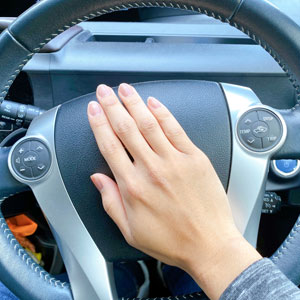
How Long You Can Expect To Have Your License Suspended For
A DWI arrest usually leads to a driver’s license suspension, though the length and cause of the suspension depend largely on the details of the arrest.
When you’re suspected of driving while intoxicated, the officer will review a statutory warning with you, often referred to as the DIC-24 form. This form outlines your legal obligation to submit a chemical sample and explains the consequences of refusing to comply.
- If You Provide A Sample & Have No Recent SuspensionsVoluntarily providing a breath or blood sample (even if it indicates a BAC over 0.08%) results in a 90-day license suspension if you haven’t had an administrative license suspension for a DWI within the last ten years.
- If You Refuse To Provide A SampleDeclining to provide a sample leads to a 180-day suspension, even without any previous license suspensions in the past ten years.
- If You Have a Prior Suspension Within the Last Ten YearsFor those with a previous suspension in the last decade—either for refusing a test or for a BAC over 0.08%—the penalties increase. If you provide a sample, the suspension lasts one year; if you refuse, it extends to two years.
These suspensions can seriously disrupt daily life, particularly in Texas, where personal vehicles are essential for everything from work commutes to family responsibilities.
The Penalties For Driving With A Suspended License In Nueces County
Driving with a suspended license in Texas is a serious offense, with penalties that escalate based on your record and the reasons for suspension. For a first offense, driving with a suspended license is classified as a Class C misdemeanor, which can lead to a fine of up to $500.
If you’ve been previously arrested for driving on a suspended license, however, the offense is upgraded to a Class B misdemeanor. For those whose license suspension stemmed from a DWI, a Class B misdemeanor carries much stiffer penalties: up to six months in jail and a fine of up to $2,000.
How To Avoid A License Suspension After A DWI In Texas
One of the first actions we take as your DWI defense attorneys is to challenge your license suspension. If you’ve been notified of a pending suspension due to a refusal to provide a chemical sample or a BAC over 0.08%, you’ll have only 15 days to contest the suspension.
If you voluntarily provided a sample, the timeline is slightly different. The Texas Department of Public Safety (DPS) will analyze the sample, and if it exceeds 0.08% BAC, they will send a notice of suspension by mail. From the date on that letter, you have 20 days to initiate a challenge.
Contesting a suspension requires a hearing. While challenging a suspension isn’t easy, this hearing can reveal early opportunities to identify weaknesses in the state’s case—such as testimony from the arresting officer, often before they have had time to fully prepare.
How To Keep Limited Driving Privileges During A License Suspension In Texas
If your driver’s license is suspended, you may still have options to drive legally in Texas with a restricted license. We can work with you to secure one of two types of restricted licenses, which allow limited driving privileges during the suspension.
1. Ignition Interlock License
This type of restricted license lets you drive anywhere in Texas, as long as your vehicle has an ignition interlock device installed. The device works like a breathalyzer, requiring a breath test before the car will start.
2. Occupational or Essential Need License
This restricted license allows you to drive for specific, necessary purposes only, including:
- Getting to and from work,
- Driving for work-related tasks,
- Handling essential errands like medical appointments and grocery shopping,
- Transporting your children to and from school or medical appointments,
- Driving in emergencies.
This license may also limit your driving to certain counties and restrict the hours you can drive each day. However, it lets you handle essential needs while you wait for your DWI trial, which can be invaluable for keeping up with daily responsibilities.
It’s important to keep in mind that, if you’re convicted at your DWI trial, the penalties you may face can extend far beyond a license suspension, potentially affecting many aspects of your life. For this reason, we explore every available defense to help protect your future.
Still Have Questions? Ready To Get Started?
For more information on dealing with a License Suspension After A DWI, an initial strategy session is your next best step. Get the information and legal answers you are seeking by calling (361) 882-7788 today.
